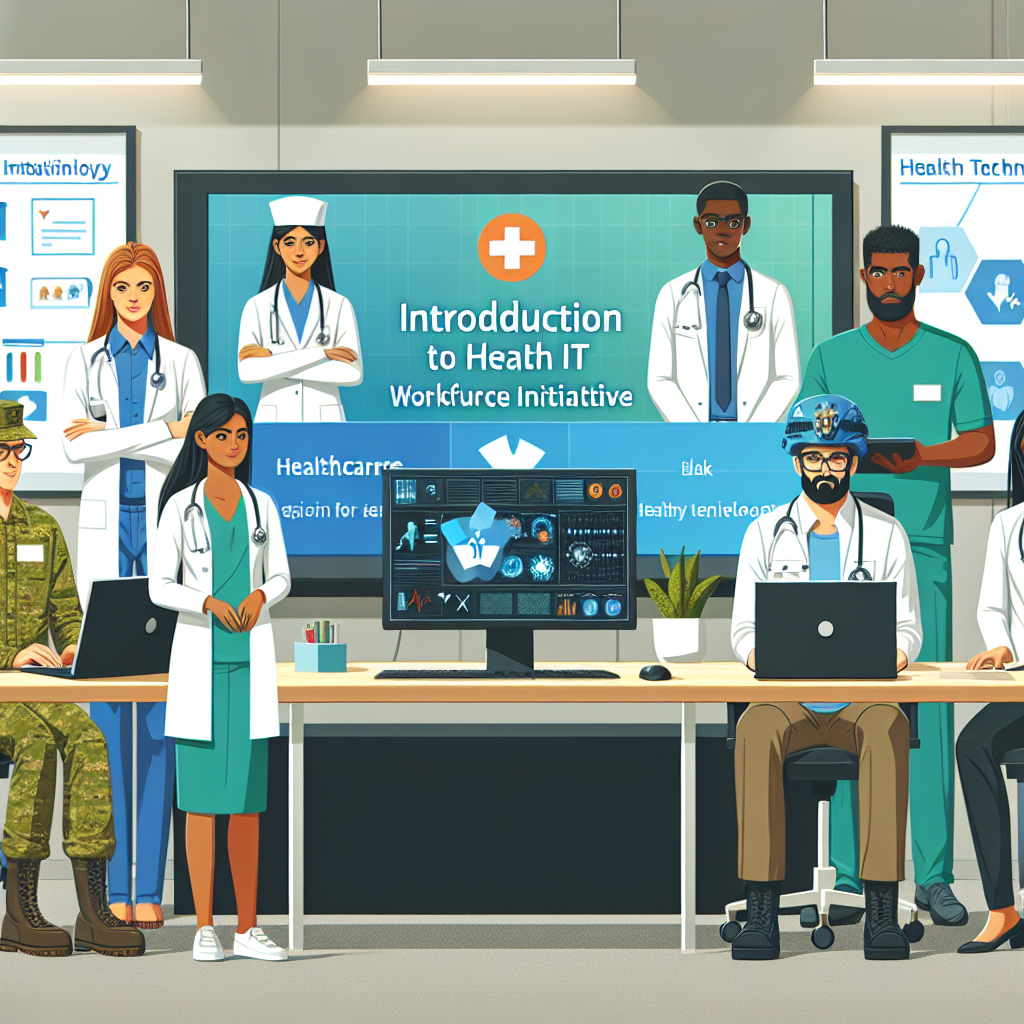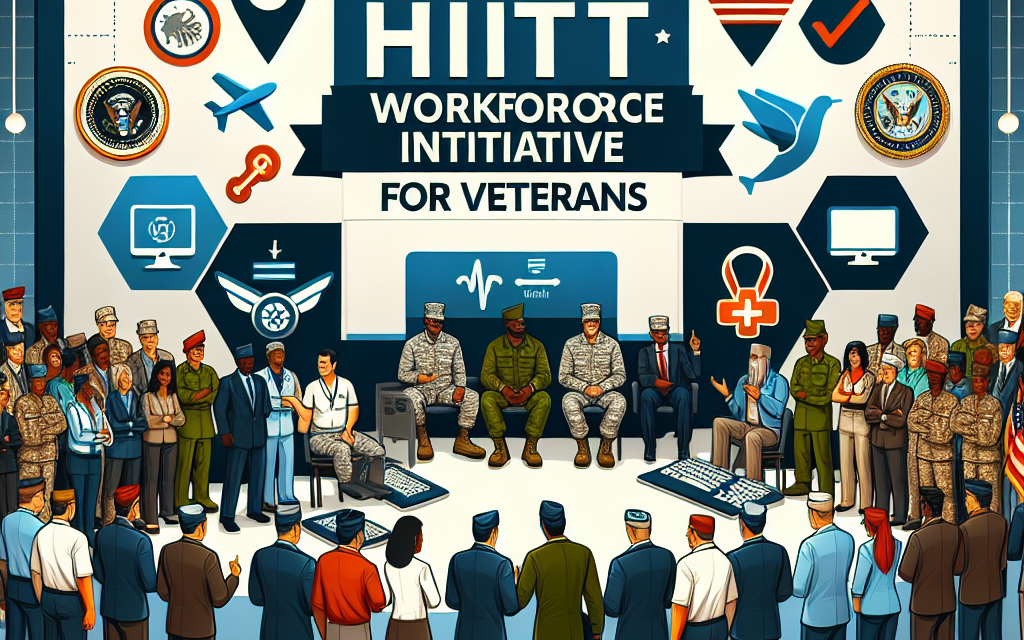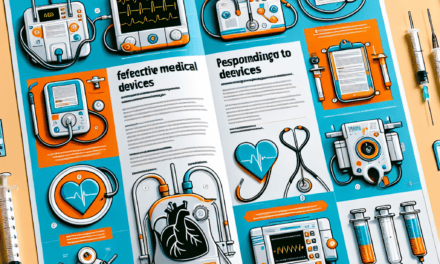HIMSS Introduces Health IT Workforce Initiative for Veterans

The Healthcare Information and Management Systems Society (HIMSS) has launched a groundbreaking initiative aimed at integrating veterans into the health IT workforce. This initiative is designed to leverage the unique skills and experiences of veterans, providing them with opportunities in the rapidly growing field of health information technology. As the healthcare industry continues to evolve, the demand for skilled IT professionals is increasing, and veterans are uniquely positioned to fill this gap. This article explores the various facets of the HIMSS initiative, its impact on veterans, and the broader implications for the healthcare industry.
Understanding the HIMSS Initiative
The HIMSS Health IT Workforce Initiative for Veterans is a comprehensive program that seeks to bridge the gap between military service and civilian employment in the health IT sector. This initiative is not just about providing jobs; it is about creating sustainable career paths for veterans, ensuring they have the necessary skills and support to thrive in the industry.
Program Structure and Goals
The HIMSS initiative is structured around several key components designed to support veterans at every stage of their transition into the health IT workforce. These components include training programs, mentorship opportunities, and partnerships with healthcare organizations. The primary goal is to equip veterans with the skills needed to succeed in health IT roles, such as data analysis, cybersecurity, and systems management.
One of the standout features of the program is its focus on personalized career development. Veterans are paired with mentors who provide guidance and support, helping them navigate the complexities of the health IT landscape. This mentorship is crucial in helping veterans translate their military skills into civilian competencies.
Training and Certification
Training is a cornerstone of the HIMSS initiative. The program offers a range of training modules tailored to the specific needs of veterans. These modules cover essential topics such as electronic health records (EHR) management, health information exchange, and IT project management. By providing veterans with access to cutting-edge training resources, HIMSS ensures they are well-prepared to meet the demands of the health IT industry.
In addition to training, the initiative emphasizes certification. Obtaining industry-recognized certifications is a critical step in establishing credibility and enhancing employability. HIMSS partners with leading certification bodies to offer veterans discounted rates and streamlined pathways to certification in areas like health IT security and data management.
Partnerships with Healthcare Organizations
Collaboration with healthcare organizations is a vital aspect of the HIMSS initiative. By partnering with hospitals, clinics, and other healthcare providers, HIMSS creates a direct pipeline for veterans to enter the workforce. These partnerships also ensure that the training provided aligns with the current needs of the industry, making veterans more attractive candidates for employment.
Healthcare organizations benefit from this collaboration by gaining access to a pool of highly skilled and motivated individuals. Veterans bring a unique perspective to the workplace, characterized by discipline, leadership, and a strong work ethic. These qualities are highly valued in the fast-paced and ever-changing world of health IT.
Success Stories and Case Studies
The success of the HIMSS initiative can be seen in the numerous case studies and testimonials from veterans who have successfully transitioned into health IT roles. For example, John, a former Army communications specialist, leveraged the training and mentorship provided by HIMSS to secure a position as a health IT project manager at a major hospital. His military experience in managing complex communication systems translated seamlessly into managing health IT projects.
Another success story is that of Sarah, a Navy veteran who completed the HIMSS training program and obtained certification in health IT security. She now works as a cybersecurity analyst for a healthcare provider, where she applies her military training in cybersecurity to protect sensitive patient data.
Challenges and Opportunities
While the HIMSS initiative has achieved significant success, it is not without its challenges. One of the primary challenges is ensuring that veterans have access to the necessary resources and support during their transition. This includes addressing potential barriers such as financial constraints, geographic limitations, and the need for flexible training schedules.
Despite these challenges, the initiative presents numerous opportunities for both veterans and the healthcare industry. For veterans, it offers a pathway to meaningful and rewarding careers. For the healthcare industry, it provides access to a diverse and skilled workforce capable of driving innovation and improving patient care.
The Impact on Veterans
The HIMSS Health IT Workforce Initiative for Veterans has a profound impact on the lives of veterans, offering them a chance to build successful careers in a growing industry. This section delves into the various ways in which the initiative benefits veterans, from enhancing their employability to improving their quality of life.
Enhancing Employability
One of the most significant benefits of the HIMSS initiative is its ability to enhance the employability of veterans. By providing targeted training and certification opportunities, the program equips veterans with the skills needed to compete in the health IT job market. This is particularly important given the competitive nature of the industry and the rapid pace of technological advancements.
Veterans who participate in the initiative gain a competitive edge over their peers, as they possess both technical skills and the unique attributes developed during military service. These attributes include problem-solving abilities, adaptability, and a strong sense of responsibility, all of which are highly valued by employers in the health IT sector.
Improving Quality of Life
Beyond employability, the HIMSS initiative has a positive impact on the overall quality of life for veterans. Securing stable and fulfilling employment is a critical factor in achieving financial independence and personal satisfaction. For many veterans, transitioning to civilian life can be challenging, and finding a career that aligns with their skills and interests is essential for a successful transition.
The initiative provides veterans with a sense of purpose and direction, helping them build a new identity outside of the military. This is particularly important for veterans who may struggle with the loss of camaraderie and structure that military life provides. By connecting veterans with meaningful work in the health IT sector, the initiative helps them regain a sense of belonging and fulfillment.
Addressing Mental Health and Well-being
Mental health and well-being are critical considerations for veterans transitioning to civilian life. The HIMSS initiative recognizes the importance of supporting veterans’ mental health and incorporates this into its program design. By providing access to supportive networks and mentorship, the initiative helps veterans navigate the emotional challenges of career transition.
Furthermore, the initiative’s focus on creating a supportive community fosters a sense of camaraderie among participants. This community aspect is vital for veterans who may feel isolated or disconnected after leaving the military. By building connections with fellow veterans and industry professionals, participants can share experiences, seek advice, and find encouragement.
Financial Stability and Career Advancement
Financial stability is a key concern for many veterans, particularly those who may face financial challenges during their transition to civilian life. The HIMSS initiative addresses this by providing veterans with access to well-paying jobs in the health IT sector. The demand for skilled IT professionals in healthcare is high, and veterans who complete the program are well-positioned to secure lucrative positions.
In addition to financial stability, the initiative offers opportunities for career advancement. The health IT industry is dynamic and offers numerous pathways for growth and development. Veterans who enter the field can pursue various career trajectories, from technical roles to leadership positions, depending on their interests and skills.
Building a New Identity
For many veterans, transitioning to civilian life involves building a new identity and finding a sense of purpose outside of the military. The HIMSS initiative plays a crucial role in this process by helping veterans discover new passions and career paths. By providing access to training and mentorship, the initiative empowers veterans to explore new opportunities and redefine their professional identities.
This process of identity-building is essential for veterans’ long-term success and well-being. By finding meaningful work in the health IT sector, veterans can create a new sense of purpose and direction, contributing to their overall happiness and fulfillment.
The Broader Implications for the Healthcare Industry
The HIMSS Health IT Workforce Initiative for Veterans not only benefits veterans but also has significant implications for the healthcare industry as a whole. This section explores how the initiative addresses critical challenges facing the industry and contributes to its growth and innovation.
Addressing Workforce Shortages
One of the most pressing challenges facing the healthcare industry is the shortage of skilled IT professionals. As healthcare organizations increasingly rely on technology to improve patient care and streamline operations, the demand for health IT expertise continues to grow. The HIMSS initiative helps address this shortage by providing a steady pipeline of qualified veterans ready to enter the workforce.
By tapping into the veteran talent pool, healthcare organizations can fill critical roles in areas such as data management, cybersecurity, and systems integration. This not only helps alleviate workforce shortages but also ensures that healthcare organizations have access to a diverse and skilled workforce capable of driving innovation.
Driving Innovation and Technological Advancement
Veterans bring a unique perspective to the healthcare industry, characterized by their problem-solving abilities, adaptability, and leadership skills. These attributes are invaluable in driving innovation and technological advancement within healthcare organizations. By integrating veterans into the health IT workforce, the HIMSS initiative fosters a culture of innovation and continuous improvement.
Veterans’ experience in managing complex systems and operations in high-pressure environments translates well to the fast-paced world of health IT. Their ability to think critically and adapt to changing circumstances makes them ideal candidates for roles that require innovative thinking and strategic planning.
Enhancing Patient Care and Outcomes
The ultimate goal of health IT is to improve patient care and outcomes. By leveraging technology to enhance data management, streamline processes, and improve communication, healthcare organizations can deliver more efficient and effective care. The HIMSS initiative contributes to this goal by providing healthcare organizations with access to skilled IT professionals who can implement and manage these technologies.
Veterans’ commitment to service and excellence aligns with the healthcare industry’s mission to provide high-quality care. By integrating veterans into the health IT workforce, healthcare organizations can enhance their ability to deliver patient-centered care and improve outcomes.
Promoting Diversity and Inclusion
Diversity and inclusion are critical considerations for the healthcare industry, as they contribute to a more equitable and effective workforce. The HIMSS initiative promotes diversity by providing opportunities for veterans from diverse backgrounds to enter the health IT sector. This not only enhances the diversity of the workforce but also brings a range of perspectives and experiences to the industry.
By fostering an inclusive environment, healthcare organizations can benefit from the unique insights and contributions of veterans. This diversity of thought and experience is essential for driving innovation and improving patient care.
Building Stronger Communities
The HIMSS initiative has broader implications for communities by contributing to economic growth and stability. By providing veterans with access to well-paying jobs in the health IT sector, the initiative helps strengthen local economies and build more resilient communities. Veterans who secure stable employment are better positioned to contribute to their communities, both economically and socially.
Furthermore, the initiative’s focus on creating a supportive community for veterans fosters a sense of belonging and connection. This community aspect is vital for veterans’ long-term success and well-being, as it provides a network of support and encouragement.
Conclusion
The HIMSS Health IT Workforce Initiative for Veterans is a transformative program that offers significant benefits for veterans, the healthcare industry, and communities. By providing veterans with access to training, mentorship, and employment opportunities in the health IT sector, the initiative enhances their employability, improves their quality of life, and contributes to their overall well-being.
For the healthcare industry, the initiative addresses critical workforce shortages, drives innovation, and enhances patient care. By integrating veterans into the health IT workforce, healthcare organizations gain access to a diverse and skilled talent pool capable of driving technological advancement and improving outcomes.
Ultimately, the HIMSS initiative represents a win-win for all stakeholders involved. It provides veterans with a pathway to meaningful and rewarding careers while contributing to the growth and success of the healthcare industry. As the initiative continues to evolve, it holds the potential to create lasting positive change for veterans, healthcare organizations, and communities alike.





